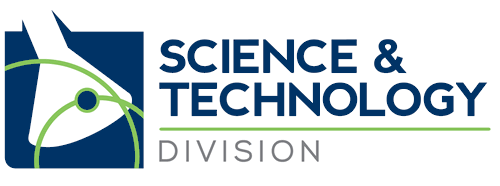Division Open House Wednesday, 7:00pm – 8:00pm Meet and mingle with members from all 16 ATA Divisions! ATA Divisions are professional-interest groups providing specialty- and language-specific information and networking to assist their members in today’s competitive marketplace. Don’t miss this opportunity to get to know them all. A variety of desserts and coffee will be available. Open to all ATA conference attendees.
Disclaimer
Disclaimer
The views expressed in this article are those of the author(s) and not necessarily the official position of ATA.
-
-
Dear S&TD members, I am writing on behalf of the Leadership Council. We would like to thank all of you who took the time to respond to the survey we sent out in June 2011. Your responses have been very helpful in determining how we can better serve the division’s 1,300 members. We received 113 responses and we are happy to observe from this sample how diverse our division is. Years of translation experience range from less than five years (25%) to more than 21 years (28%). We are glad that the services provided so far have proved helpful to …
-
Science and Technology Division Boston Special Event Wednesday October 26, 2011, 1-5 PM Trip to Museum of Science S&TD is organizing a trip for the afternoon of Wednesday (from 1 to 5 PM) to Boston’s Museum of Science, a famous landmark founded in 1830 located in Science Park on a plot of land spanning the Charles River. It is only 8 subway stops from the conference hotel. Along with over 500 interactive exhibits, the Museum features a number of live presentations and various shows throughout the building every day. Life, Earth and physical sciences, math exhibits, and current “hot” areas …
-
2011 Science and Technology Division Dinner__________________________________________________________Please join our group to enjoy superb Indian cuisine and S&TDnetworking. WHEN:Thursday October 27, 2011, 6:30-9:30PM WHERE:Kashmir Indian Restaurant279 Newbury St (one block from the hotel) Boston, MA 02116(617) 262-4770https://www.oneworldcuisine.com/Restaurants/Kashmir/k_index.php Voted Best by Boston Magazine, The Improper Bostonian, and many others. __________________________________________________________ MENU__________________________________________________________ Appetizer:Vegetable PakoraSeekh Kebab Entrés:(served with 3 kinds of chutney)Chicken Tikka MasalaDal makhniSahiAloogoviKabuli chana Dessert:Gulabjamun __________________________________________________________ PAYMENT AND RESERVATIONS__________________________________________________________ Cost for dinner is $37.50 (including tax and gratuity). You may purchase your owndrinks from the server. Please mail your check for this dinner for $37.50 made payable to: Alicja Yarborough4400 Chalfont PlaceBethesda, MD …
-
The International Federation of Translators (FIT) holds a Congress every three years. This year it was run by ATA and held in San Francisco on August 1-4, 2011. The Congress has a reputation for being more theoretical than ATA conferences and for that reason, many translators don’t attend. However, San Francisco is within handy driving distance of my home, so the family planned a summertime trip to see the city and I took time out to attend one day of the Congress. Regardless of how the Congress has been in the past, I knew that this year’s eclectic program had …
-
Branching out from Translation Events: a Translator’s View of the Society for Technical Communication’s Annual Meeting
by DisclaimerBy Karen M. Tkaczyk Each year I define a strategic aim for my business. In 2011, I selected one tool that serves a twofold purpose: I joined the Society for Technical Communication (STC). The goals were to improve my writing and editing skills, and to broaden my professional network. Making the most of the society’s online resources is obvious, but attending training events and the annual meeting at the member rate was also part of my plan. I’ve had this on the back burner for a while, and brought it forward this year because the society’s annual meeting, called the …
-
Software Translation and Localization Localization (sometimes shortened to “l10n” because there are 10 letters between the l and the n) is when you adapt a product or service to a particular language, culture, and desired local “look-and-feel.” Ideally, a product or service is developed so that this localization is relatively easy to achieve – for example, by creating technical illustrations for manuals where text can easily be changed to another language and allowing some expansion room for this purpose. This process is termed internationalization. An internationalized product or service is therefore easier to localize. The process of first enabling a …
-
The Division is calling for nominations for the positions of Administrator and Assistant Administrator, for 2012 and 2013. For a description and schedule of the election process, including a nomination form, see: https://www.ata-divisions.org/S_TD/S_TD_Call_For_Nominations_2011.htm Steven MarzuolaAssistant Administrator
-
We’ve changed it so visitors can post without using a Google account or any other online membership. Thank you, Steven Marzuola. To comment you will still need to select a profile, however you can just use your name and any URL. If you use the anonymous option, please include your name in the comment. Anonymous comments may not be posted. A moderator must review the comment and post it if appropriate. Thank you for your patience.
-
A note from the editor. It starts out easily enough with the desire to comment on an interesting article. You click comment and a dialog box appears. So far so good. You type your comment and click post. Now the system is going to start making demands. In order to comment you must sign in using an account profile with:GoogleWordPressLiveJournalTypePadAIMOpenID It is easy to create a profile on Google. You can use your existing email address. Please let me know if you have difficulties commenting on blog articles. Stephanie Strobel, sds@strobelengineering.com

